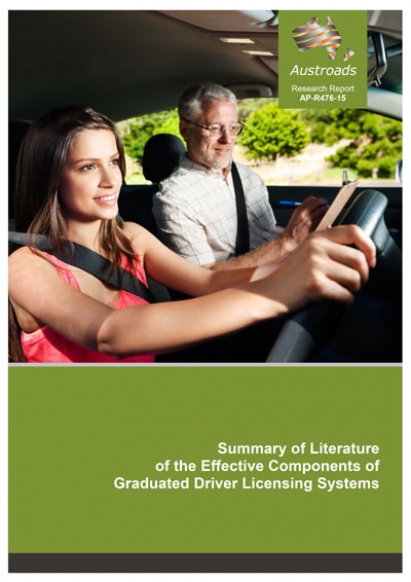Tuesday, 24 February 2015
Austroads has published the results of a literature review examining the effectiveness of different components of graduated driver licensing.

Components examined included: minimum learner age, minimum learner period, minimum learner supervised driving hours, supervisory driver requirements, formal education requirements, licence tests, minimum provisional age, minimum provisional period, night driving restriction, peer passenger restriction, blood alcohol concentration limit, mobile phone or other technology restriction, vehicle power restriction and specific sanctions for speed, alcohol or other offences.
The project considered whether there was evidence that the component is effective in reducing young driver crashes and/or injuries.
The most well evaluated components, and therefore having the most examples of quantified benefits in terms of crash and/or injury reductions, were a minimum learner age of 16 years, a minimum learner period of 12 months, minimum provisional age greater than 16 years (with increasing benefits with increasing age), night driving restrictions, peer passenger restrictions and a zero blood alcohol concentration limit.
Much of the literature originated from North America, which differs to Australasia in both GDL and enforcement practices. The authors recommend that jurisdictions continue to monitor GDL research, but also evaluate their own data to the extent possible to ensure the appropriateness of each GDL component to their jurisdiction.
Report Link: Summary of Literature of the Effective Components of Graduated Driver Licensing Systems
